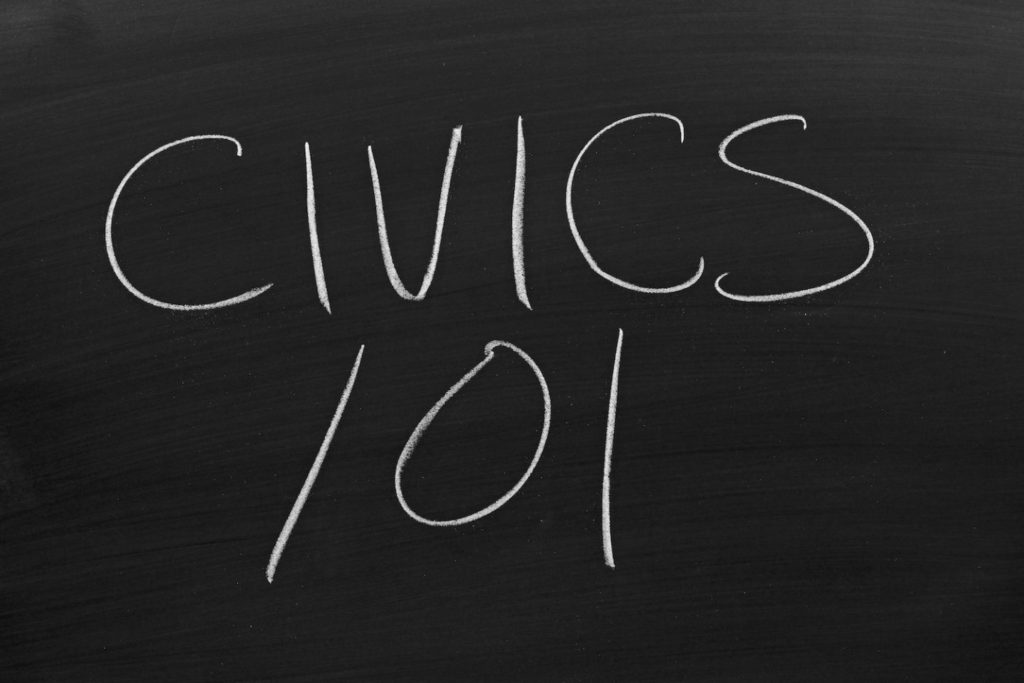Civics and CRT: Should the law have a say in curricula?
Public education has long drifted from reading, writing and arithmetic, with some experts warning the entire profession is lurching from fad to fad rather than sticking with the basics.
Current…

Public education has long drifted from reading, writing and arithmetic, with some experts warning the entire profession is lurching from fad to fad rather than sticking with the basics.
Current strife in education over Critical Race Theory (CRT), radical gender ideology and other objectional curricula is causing parents, teachers and administrators headaches that may be avoidable if only schools would focus on the fundamentals, with a hearty helping of civics to boot.
Results from two recent surveys from the RAND Corporation highlight the brokenness of public education.
Over half (54%) of teachers and principals believe there should not be legal limits on classroom conversations about racism and other contentious topics (e.g., CRT and other social justice programming), while about 20% of teachers and principals believed there should be limits.
At the same time, 37% of teachers and 61% of principals reported being harassed for teaching about race, racism, or bias, or because of their school’s policies on COVID-19 safety measures during the first half of the 2021–2022 school year.
Only the reactions of families to COVID-19 mitigation measures imposed by schools caused greater stress for teachers and administrators.
These measures were often seen by parents and students as reflexive, arbitrary and unfounded actions on the part of school district personnel who were more concerned with optics than actual safety.
Two years ago, the same RAND survey made news when it revealed 4 in 5 social studies teachers felt unqualified to teach civics to their students. Researchers noted between one-third and just over half of teachers in grades K-12 have not received any training on civic education.
The subject is rarely addressed in teachers’ colleges, leaving a significant segment of America’s youth and teachers unaware of the rights and freedoms intended for them by the framers of our founding documents.
Civics is the study of the rights, responsibilities and duties of being a citizen. Further, it enables the citizen to recognize when events or acts are incompatible with our inherent rights as evinced in the Constitution.
An ignorance of civics makes for a population easily manipulated by demagoguery or propaganda.
The report is part of Rand’s Truth Decay initiative, which is studying how the role of facts and analysis is fading out of public life in America.
The study authors note that elementary social studies teachers are least likely to highlight civics education. K-5 teachers did, however, heavily emphasize social and emotional learning, improving school climate, and conflict resolution among students.
The rate of civics instruction increased somewhat in secondary schools, but still fell far short of instruction hours in trendier subjects within the social studies sphere, such as CRT.
The onset of pandemic-driven remote learning exposed parents to the leftward slant of today’s educational landscape. The educational establishment, long used to operating in an “ivory tower” atmosphere, was blindsided by the backlash as parents looked into what their children were being taught in publicly funded schools.
Newly engaged parents became aware of the dearth of civics and core competency instruction, displaced by social justice teaching with dubious, even scandalous origins.
With the curtain drawn back on CRT, legislators began to act. An analysis by Education Week showed no fewer than 37 states introduced bills to curtail the teaching of CRT in public schools.
The political left predictably reacted with ferocity, leading inevitably to friction between parents and teachers over curriculum choices – the same friction cited by teachers as the primary reason for leaving the profession entirely.
Notably, according to the Rand survey, “educators who reported being harassed about politicized issues experienced lower levels of well-being and worse perceptions of their school or district climate; they were more likely to cite the politicization of their profession as a reason for considering leaving their jobs.”
In today’s highly charged political climate, the best hope for America’s public schools may lie in a retrenchment of apolitical instruction, a comprehensive curriculum based on a “just the facts” foundation, sans partisan posturing.
However, with socio-political themes presently coursing through nearly every academic discipline, the likelihood of an entrenched educational establishment willingly forgoing the chance to impose a favored narrative is meager at best.
Many parents see the writing on the wall, having already pulled their children out of public schools and enrolled them in superior alternatives, such as Christian schools or homeschools.



